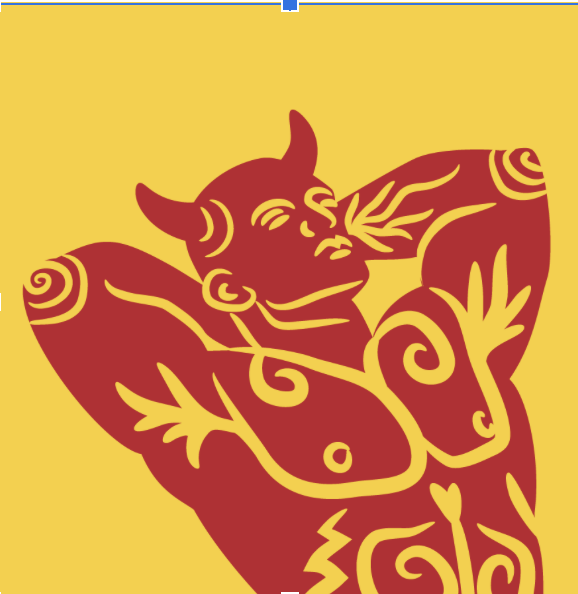Curatorial Statement
I Look at the World
The current exhibition I Look at the World takes its title from a poem by Langston Hughes and displays the work of two Philadelphia based photographers: Ada Trillo and the ceramicist Isaac Scott. Previously unaware of each other’s work, these two photographers; artists, witnesses, and participants are for the first time brought together in this exhibition that documents and captures the mass migration of people from Central America to the US border (Ada Trillo) and the Black Lives Matter protests in Philadelphia (Isaac Scott). These photographs document two events which occurred during the challenges of 2020 amidst the outbreak of COVID 19 as a global pandemic: the “caravan” of Central American migrants travelling through Mexico as well as the national protests following the murder of George Floyd. The exhibition was made possible by the Edna Andrade Fund of the Philadelphia Foundation.”
Trillo, a Latina born on the Mexican side of the US border, and Scott, a Midwestern African American, and at the time an art student in Philadelphia, created these works reflecting a similar preoccupation and aesthetic through the common language of the photographic lens. This despite, or perhaps because, their personal and specific identities vested them in the events they documented.
This exhibition explores the complex role of the artist/photographer as both impartial observer, witness and participant, and the complexity, struggle, and acceptance of those complex roles at the intersection of art and subjectivity.
David Acosta
Curator
I look at the world
I look at the world
From awakening eyes in a black face—
And this is what I see:
This fenced-off narrow space
Assigned to me.
I look then at the silly walls
Through dark eyes in a dark face—
And this is what I know:
That all these walls oppression builds
Will have to go!
I look at my own body
With eyes no longer blind—
And I see that my own hands can make
The world that's in my mind.
Then let us hurry, comrades,
The road to find.
Art Work
Ada Trillo
Ada Trillo is a Philadelphia-based photographer, who was born and raised in the bi-national border region of Juarez, Mexico, and El Paso, Texas. In her work, she focuses on borders of inclusion and exclusion as they are experienced through people in sex trafficking; climate and violence-related international migration; and long-standing barriers of race and class. Trillo’s work is in the Library of Congress, the Philadelphia Museum of Art, and several other collections. She is the recipient of the British Journal of Photography’s Female In Focus 2020 Best Series Award, and has been featured in The Guardian, Vogue, Smithsonian Magazine, and Mother Jones, among other publications. She has also been awarded The Me & Eve Grant from the Center of Photographic Arts in Santa Fe, and received First Place in Editorial in the Tokyo International Foto Awards. Trillo has exhibited across the world in New York City, Philadelphia, Japan, Luxembourg, Italy, England, France, and Germany. She holds degrees from the Istituto Marangoni in Milan, and Drexel University in Philadelphia.

Barbed Wire at the-Border, Digital Photograph, 20 X 30, 2020. After sleeping in a wasteland by the Guatemala/Mexico border, José, a 6-year-old migrant child traveling with his father from Honduras, is waiting patiently at 3 A.M. to start his journey across the border into Mexico via the Suchiate River. Two days prior, the Caravan attempted to cross into Mexican territory via the Suchiate River, and the Mexican National Guard carrying semi-automatic rifles mobilized, trying to target the groups and detaining people where they could.
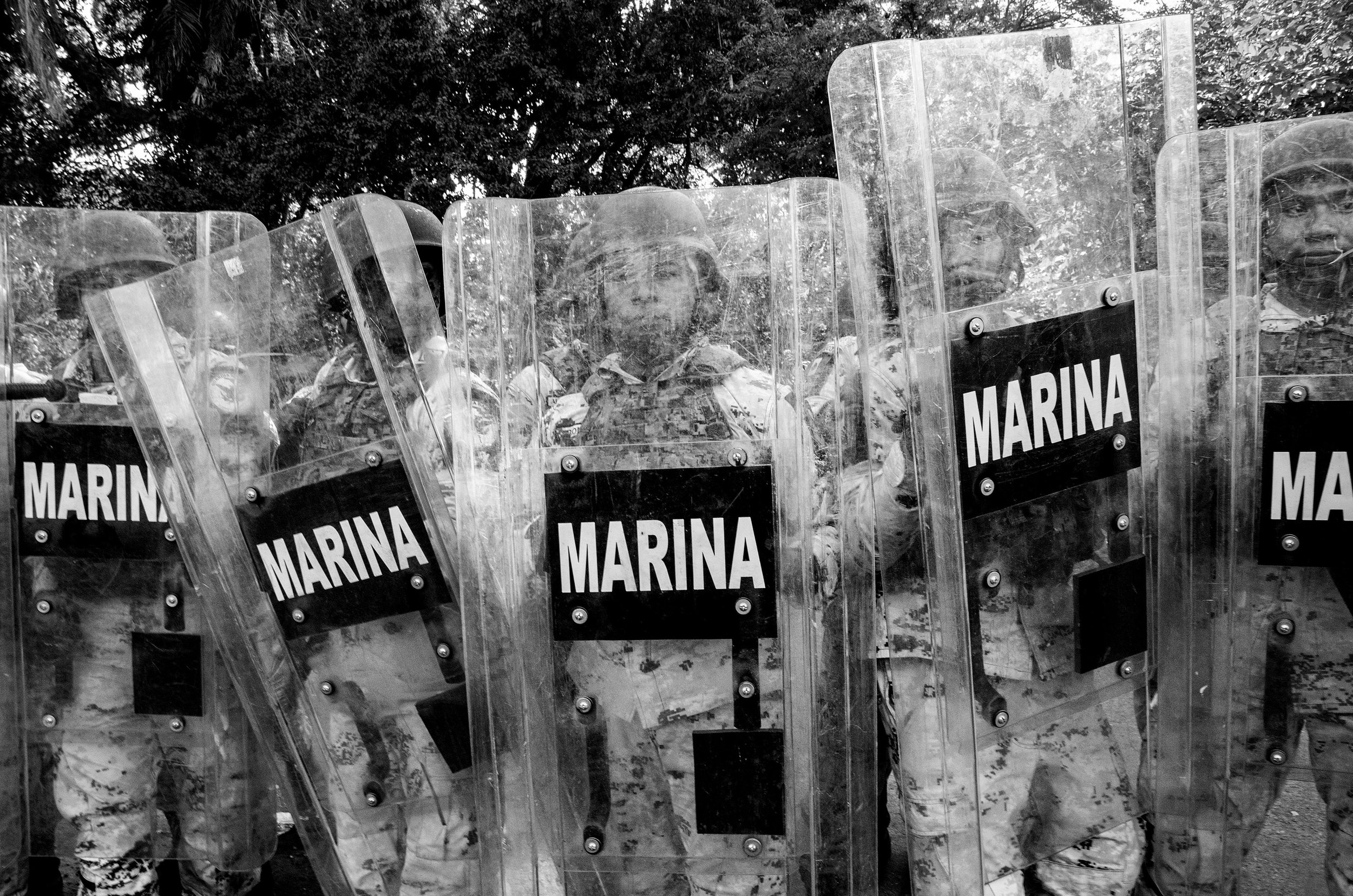
National Guard Troops, Digital Photographs, 20 X 30, 2020. This is the newly formed Guardia Nacional, established in 2019 and deployed to the border because of Trump's tariffs on Mexican goods. The Marines surrounded the caravan to deter their journey north. They tear-gassed migrants- including women and children as they arrived at the Border.

Sleeping by the River, Digital Photograph, 20 X 30, 2020. One-year-old boy, Elan, sleeps on top of a sack by the river. He is traveling with his four-year-old sister and their parents. His parents are running away from death threats in their hometown. The caravan is being blocked at the Suchiate River by the Mexican Government, and the migrants are forced to set up camp on the Guatemalan side. Little Elan must be stripped of his clothes by his mother before he can be comfortable enough to sleep in the brutal 88-degree heat.

The Migrant Camps, Tapachula, Mexico. Digital Photograph, 20 X 30, 2020. The migrants set up camps consisting of self-made tents on the ground and use disassembled cardboard boxes as beds. There is no food served; it is not a shelter. Migrants share their food with those that have no money to buy their own.

LGBTQ Asylum Seekers At the Border, Ciudad Hidalgo, Digital Photograph, 20 X 30, 2020. Ciudad Hidalgo, Border with Guatemala a group of asylum seekers from Honduras was attacked by the Mexican National guard, the guards were acting under orders from the Mexican government who were being pressured by Trump's demands for Mexico to join law enforcement to fight, detain and deport those coming towards the U.S.
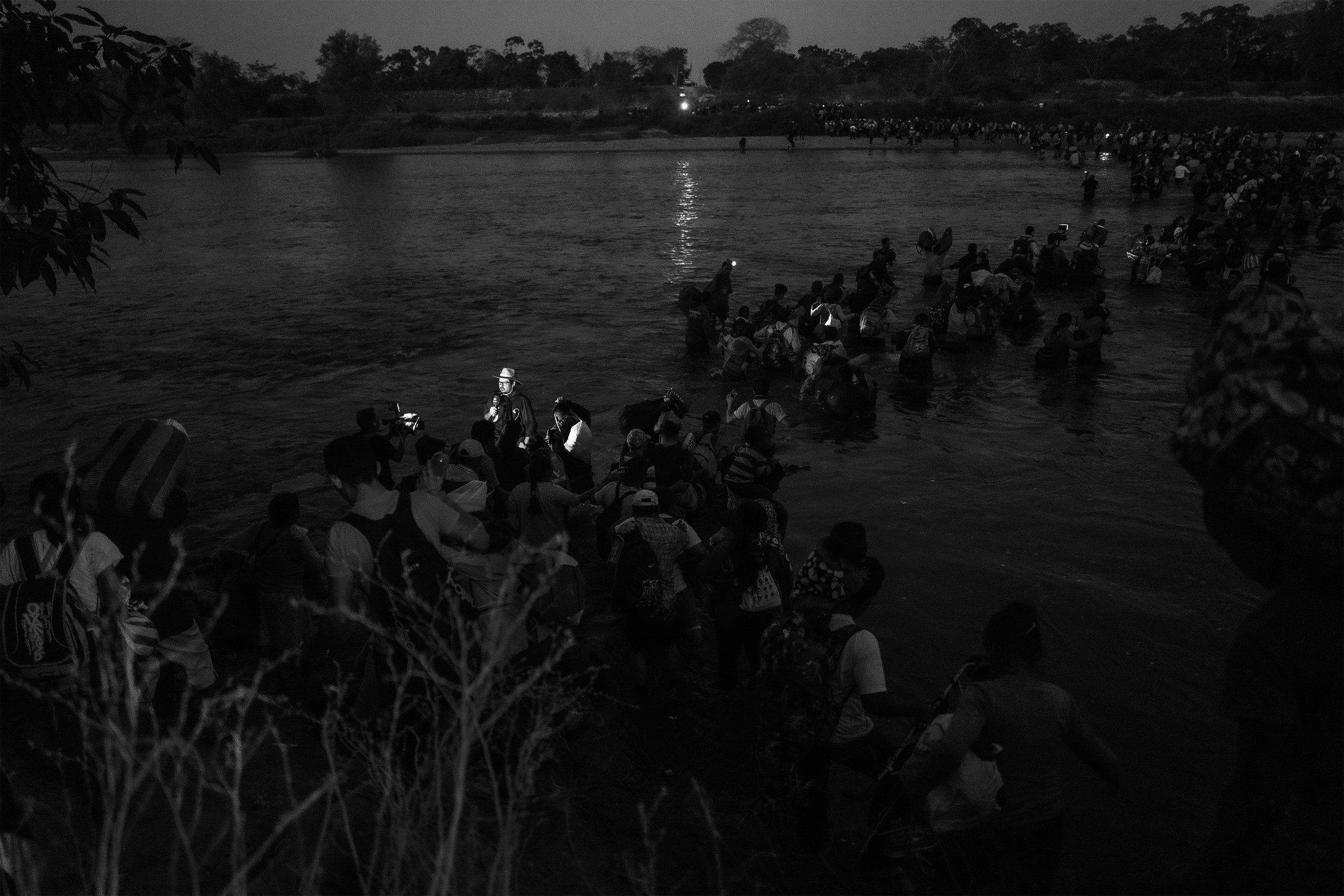
Crossing the Suchiate River, Digital Photograph, 20 X 30, 2020. Migrants from Honduras cross the Suchiate River, as they pass through Guatemala to Mexico. Two days prior, the Mexican Government tear-gassed a group of 500 migrants who arrived at the Border and attempted to wade across the river into Mexico. Despite this event, the caravan persisted. Out of desperation, they tried crossing the river again. This time they succeeded and pushed forward several miles into Mexico.

Maria Fernanda, Huixla, Mexico, Digital Photograph, 20 X 30, 2020. Maria Fernanda, age 15, was dressed as a young man to protect herself during her journey. She believed that if people thought she was a young man, she would be safer. Just as when she was seven and living on the streets, she did whatever was necessary to survive. Many women and children traveling alone suffer from violence. However, most victims fear they will be deported if they report the crimes, which are often done by the authorities or coyotes (smugglers). Maria Fernanda was unsuccessful in seeking asylum in the U.S. and was deported back to Honduras. She was killed this year by the gangs. That same day 3 other members of the LGBTQ community in Honduras were also murdered.
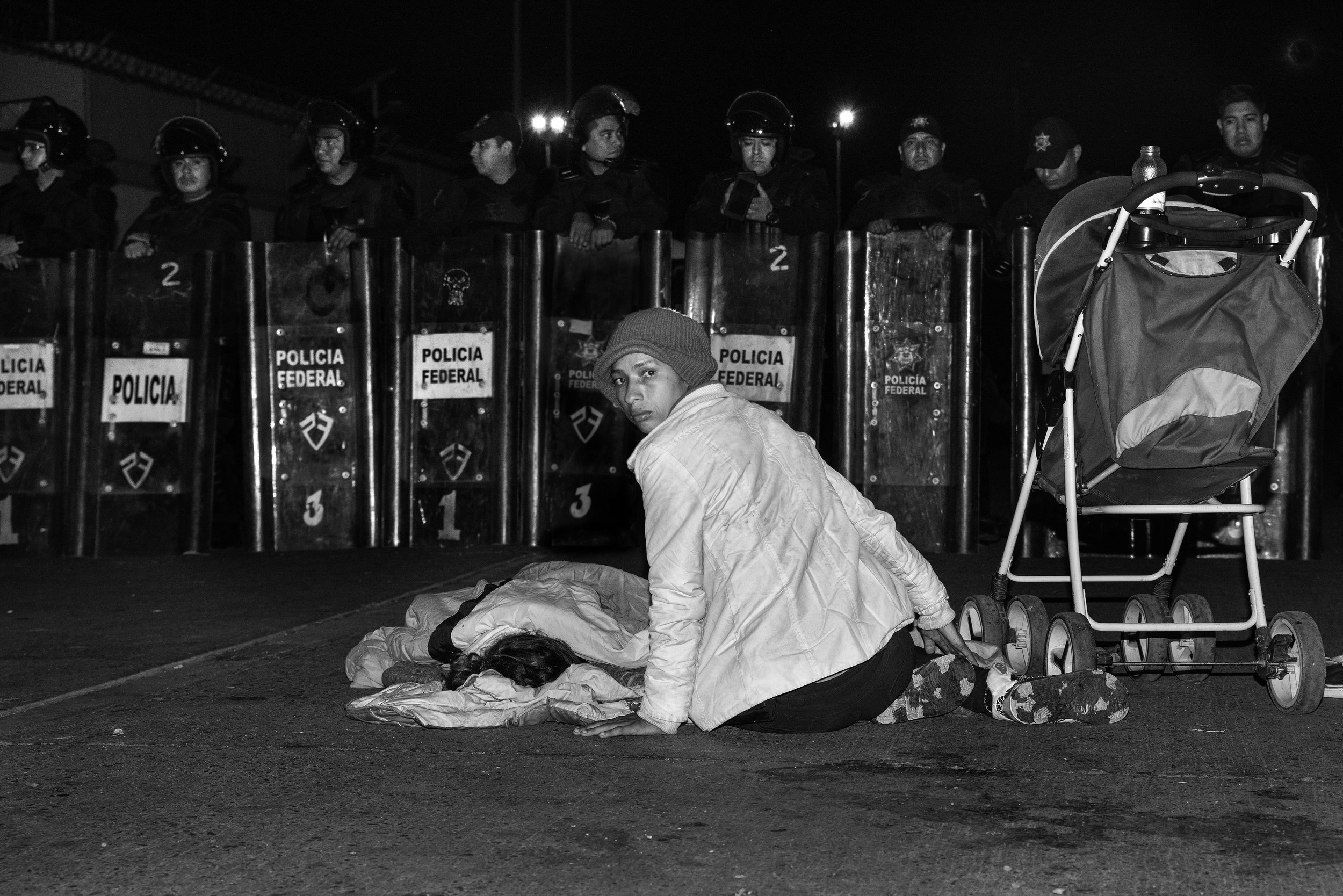
Seeking Asylum, Digital Photograph, 20 X 30, 2020. November 22nd, 2018. Tijuana, Mexico. Taken at the San Ysidro border, this picture depicts a mother and her child within 500 feet of the U.S. border in Tijuana. After travelling over 2,700 miles from Honduras, migrants had been placed by Mexican officials into a makeshift shelter in a converted open-air sports arena. They awoke hungry on Thanksgiving Day, as rain worsened the unsanitary conditions in the already-packed shelter. Migrants then walked to the border, attempting to present themselves as asylum seekers to the US immigration authorities, but instead were met with a human barrier formed by Mexican police blocking the pedestrian walkway. Municipal authorities in Tijuana have said they are unequipped to handle the growing numbers of refugees seeking asylum both in the United States and Mexico. The latest numbers have 6,219 migrants based in Tijuana with an additional 1,669 migrants trekking toward Baja California from the Mexican states of Jalisco, Nayarit, and Sinaloa.

Apizaco, Mexico, Digital Photograph, 20 X 30, 2020. A group of three women rests under the train the "Beast" waiting for it to leave for the next town until they reach the border. As many as half a million Central American migrants annually hop aboard freight trains colloquially known as ‘La Bestia’ (The Beast) on their journey through Mexico to the United States. They sit atop and grip the sides of La Bestia’s screeching steel railcars, facing accidental amputation or death if they slip. At each stage of the journey, migrants are subject to extortion, theft, rape, and even murder if they fail to pay “protection” fees established by gangs and cartels that control the route north. Gang members have been known to push migrants off moving trains if they’re unable to pay. Sexual violence, particularly against migrant women, is also commonplace. Organized crime groups aren’t the only ones profiting off migrants aboard La Bestia. Some train conductors also take part in the chain of extortion by demanding bribes, particularly of women and families with young children. Since most migrants riding La Bestia are traveling without proper documents, and because Mexican authorities often participate in the abuse, most crimes that happen along the tracks go unreported.
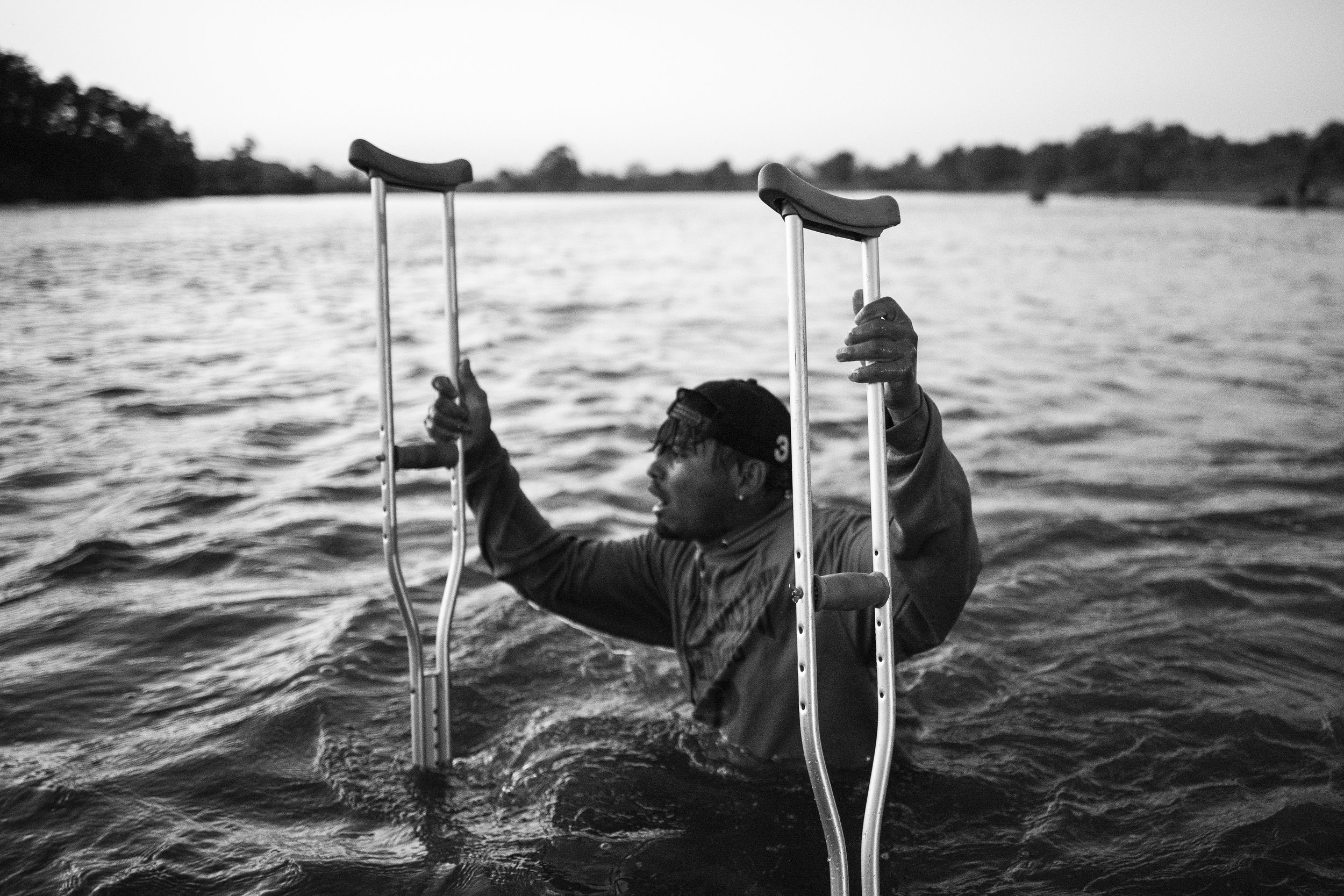
Joel Crosses the Suchiate River, Digital Photograph, 20 X 30, 2020. The Migrant Caravan successfully crossed the Suchiate River from Guatemala to Mexico. Having traveled across two countries in eight days, Joel, a Honduran Migrant with one leg, makes his way across the river with crutches, trying to keep up with the caravan.
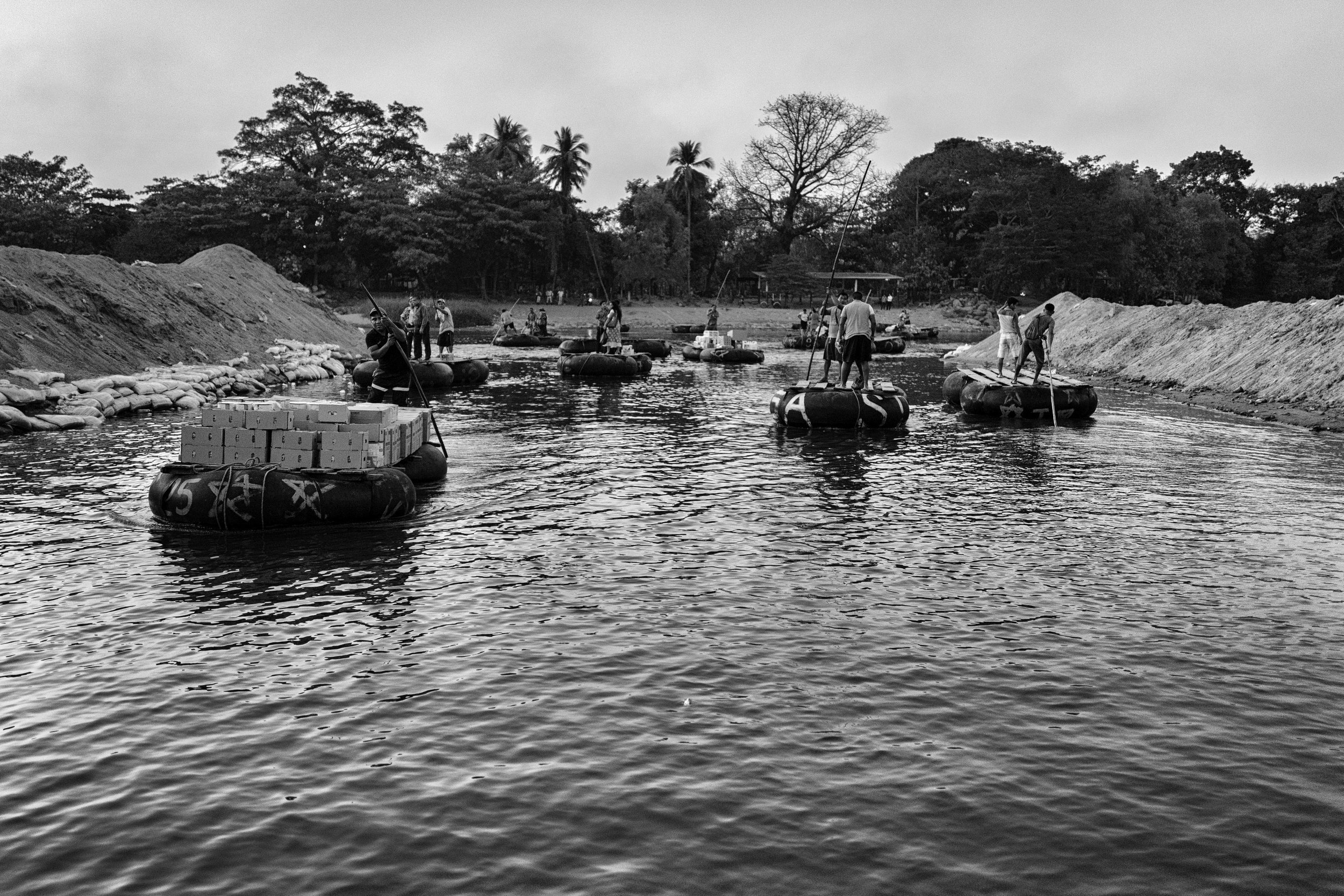
Cruzando en Lanchas, Digital Photograph, 20 X 30, 2020. Migrants crossing the river on improvised rafts made from found and salvaged materials.
Art Work
Issac Scott
Isaac Scott is a ceramic artist, curator, and photographer from Madison, WI who is currently living in Philadelphia, PA. Isaac is an MFA candidate at Tyler School of Art and Architecture and plans to graduate in Fall of 2021. His ceramic work has been exhibited around the country including The Clay Studio in Philadelphia and at the 2019 National Conference for Education in the Ceramic Arts in Minneapolis. Isaac’s photographs of the 2020 Uprising in Philadelphia were featured in the June 22, 2020 issue of the New Yorker. In August of 2020 Isaac completed his first mural alongside collaborators Gerald A. Brown and Roberto Lugo. The Stay Golden mural is located at 33rd and W Diamond St. in Philadelphia, PA. His solo exhibition When The Cracks Deepen is currently on display at Philadelphia's Magic Gardens.

October 26, 2020, Conestoga and Pine, Digital Photograph, 20 X 30. Following the shooting of Walter Wallace Jr, community members took to the streets to demand the two officers responsible (Sean Matarazzo and Thomas Munz) would be held accountable.

July 5, 2020. I-676 Broad St Entrance, Digital Photograph, 20 X 30. Protesters flow into the interstate that runs through center city Philadelphia.

June 3, 2020, 22nd and Benjamin Franklin Parkway, Digital Photograph, 20 X30.

June 4, 2020, Broad Street and John F. K. Blvd, Digital Photograph, 20 X 30. National Guard troops at city hall

June 4, 2020, Philadelphia Museum of Art, Digital Photograph, 20 X 30. Protesters lay on the ground for 8:46 minutes in a moment of silence in honor of George Floyd.

June 6, 2020, 21st and Spring Garden, Digital Photograph, 20 X 30.

June 6, 2020, 21st Street and Benjamin Franklin Parkway, Digital Photograph, 20 X 30.

June 6, 2020, Philadelphia Museum of Art, Digital Photograph, 20 X 30. A breakdance cypher was organized by local B-Boys and B-Girls to show solidarity during protests.

October 26, 2020, 55th & Pine Sts, Digital Photograph, 30 X 45. Police car set on fire during civil unrest following the shooting of Walter Wallace. October 26, 2020. 52nd St and Chestnut St, Digital photograph on 30x45

October 26, 2020, 55th and Pine, Digital Photograph, 20 X 30. Protester arrested during civil unrest following the fatal shooting of Walter Wallace Jr. by two white police officers. October 26, 2020. 55th and Pine Sts, Digital Photograph

June 13, 2020, 57th and Pine, Digital Photograph, 20 X 30, Members of the Move Organization organized a protest calling for the release of members of their group as well as other political prisoners such as Mumia Abu-Jamal and Russell Maroon Shoatz. The protest marched past 6221 Osage Ave: the site of the Move Bombing in 1985.
